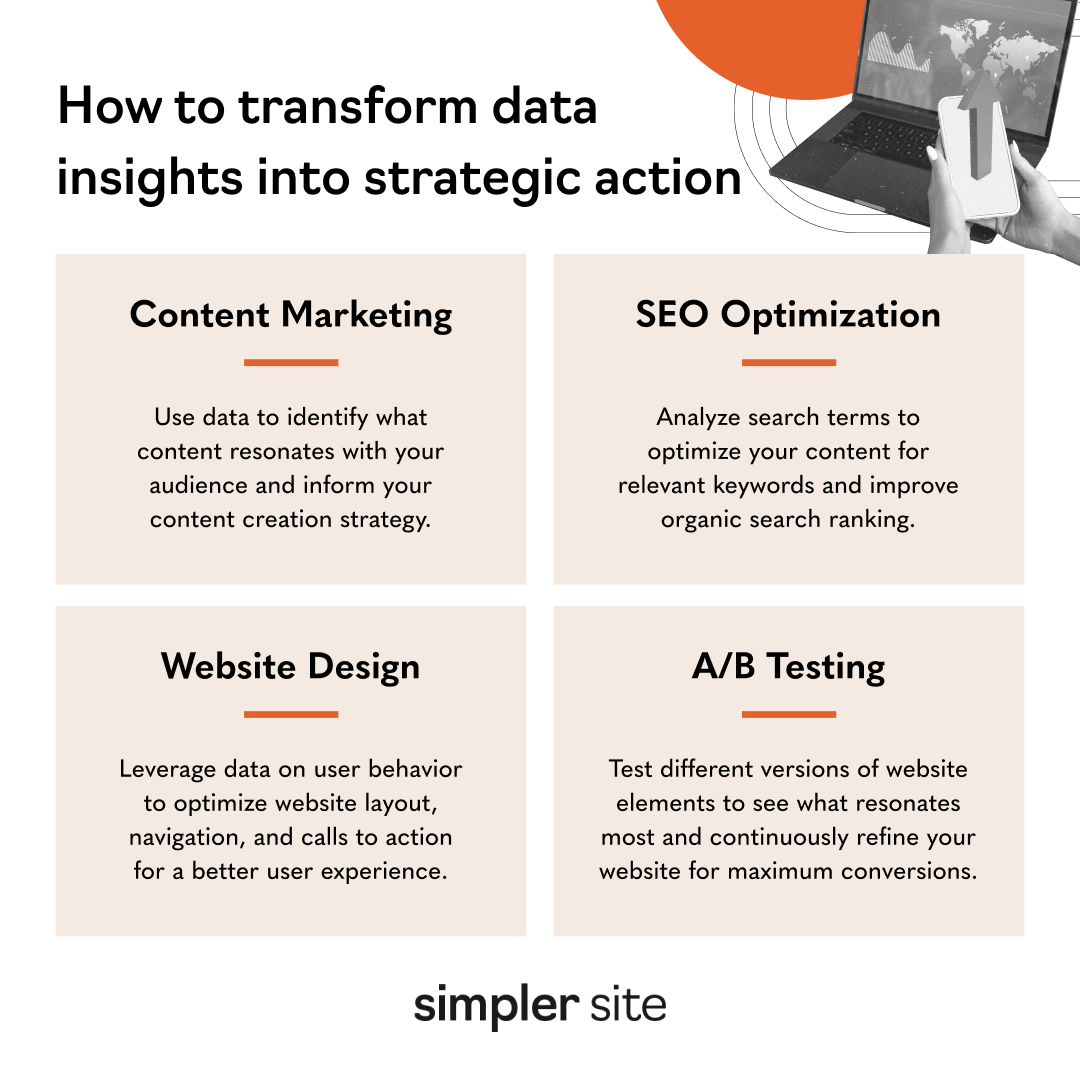In an increasingly digital world, a well-designed and well-maintained website is essential. It’s the cornerstone of your online presence, attracting visitors, showcasing your brand, and driving sales. But for many businesses, keeping their website secure, fast, and up-to-date can be a constant challenge. This challenge is particularly acute for marketers, who face relentless competition for online attention, evolving customer needs, and the pressure to prove the value of their marketing efforts.
The key to overcoming these challenges lies in data-driven decision-making. Imagine having a crystal-clear picture of what’s working on your website and what’s not. That’s the power of website analytics. By leveraging data, you can transform marketing from guesswork into a science, crafting winning strategies that deliver measurable results.
Why Data Wins in Digital Marketing
Guesswork simply won’t cut it when it comes to website design, content marketing, and SEO. In fact, a recent CMO Council study (2023) found that a whopping 72% of marketing leaders struggle to connect their marketing efforts with tangible business results.
Data analysis, however, offers a powerful solution. By leveraging data, you gain invaluable insights into user behavior, website performance, and the effectiveness of your marketing campaigns. This empowers you to:
- Unlock Audience Insights: Dive deep into user demographics, interests, and online behavior patterns. This knowledge allows you to tailor your message and offerings to resonate with your ideal customer.
- Measure Success with Data: Track key metrics like click-through rates, conversion rates, and bounce rates. This data helps you pinpoint high-performing strategies and identify areas for improvement.
- Personalize the User Journey: Use data to personalize website content and recommendations, leading to a more engaging and conversion-driven experience.
- Optimize for Impact: Analyze user behavior to understand how visitors navigate your site and identify areas for improvement in website design and content.
- Make Data-Driven SEO Decisions: Identify relevant keywords and optimize content to improve your organic search ranking, all backed by data insights.

Key Metrics to Track for Digital Success
Data is powerful, but its value hinges on understanding what you’re analyzing. Here are some essential website analytics metrics every marketer should track:
- Traffic: Total visitors to your website and their acquisition channels (organic search, social media, etc.)
- Unique Visitors: Individual visitors compared to repeat visits.
- Bounce Rate: Percentage of visitors who leave without interacting with content.
- Average Session Duration: The average time visitors spend on your website.
- Conversion Rate: Percentage of visitors who complete a desired action (e.g., newsletter signup, purchase).
By consistently monitoring these metrics, you can pinpoint trends and make data-driven adjustments to your marketing strategy for continuous improvement.

Turning Data Insights into Actionable Strategies
Ready to unlock the power of your website data? Here’s how to transform insights into strategic action:
- Content Marketing: Leverage data to pinpoint the topics that resonate most with your audience. Use these insights to inform your content creation strategy and ensure you’re delivering what your visitors crave.
- SEO Optimization: Analyze the search terms visitors use to discover your website. Use this valuable data to optimize your content for relevant keywords, boosting your organic search ranking.
- Website Design: Harness the power of data to understand user behavior. Use these insights to optimize your website layout, navigation, and calls to action, creating a seamless user experience that keeps visitors engaged.
- A/B Testing: Don’t just guess what works best! Test different versions of website elements, like headlines and call-to-action buttons, to see which variations resonate most with your audience. This data-driven approach allows you to continuously refine your website and maximize conversions.
By continuously iterating based on data insights, you can refine your online marketing strategies and achieve significant improvements in website performance and conversions.

Looking for a Website Management Service?
Website analytics are powerful, but leveraging them for data-driven decisions requires ongoing time, effort and expertise. Many businesses lack the internal resources or technical knowledge to effectively manage website performance.
That’s where website management services come in. We offer a comprehensive solution to optimize your website and provide valuable data insights. Our services include:
- Security Monitoring: Proactive measures to safeguard your website from cyberattacks.
- Speed Optimization: Regular maintenance for lightning-fast loading times.
- Content Creation & Management: Fresh, engaging content that keeps visitors coming back.
- Detailed Website Analytics Reports: Data-driven insights into user behavior and website performance to inform your marketing strategies.
Ready to take control of your website’s success? Schedule a free consultation with our digital marketing experts today. We’ll discuss your goals and develop a custom strategy to achieve them.